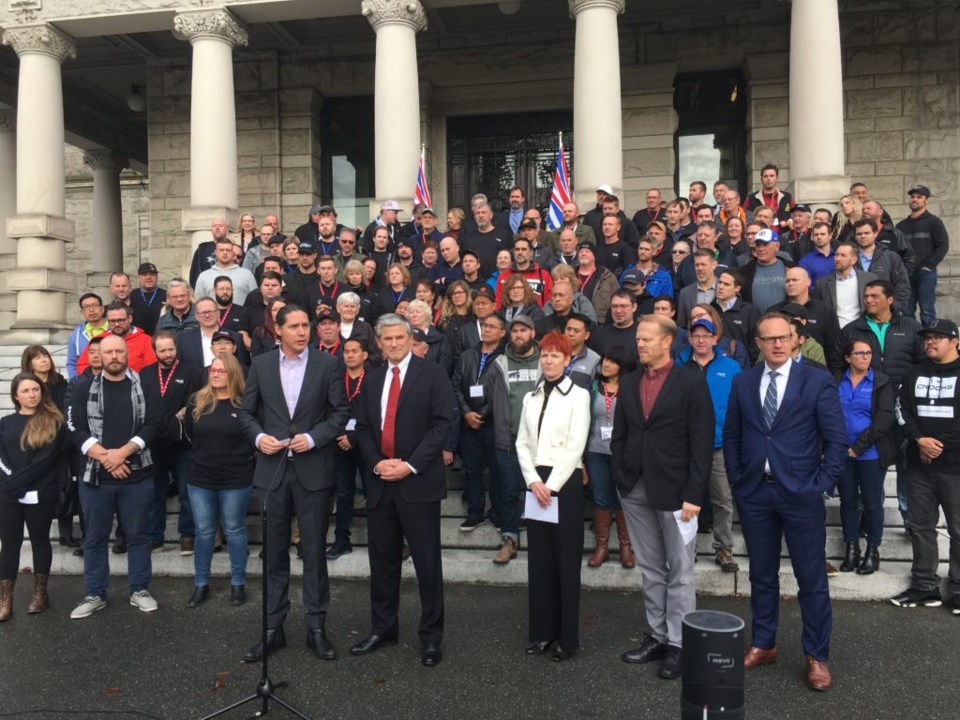One of my favourite columns on public economics, written by Russ Roberts for the Wall Street Journal in 1995, is titled “If You’re Paying, I’ll Have Top Sirloin.”
Suppose, Roberts writes, there is a restaurant where you’ll usually spend $6 for a meal – a sandwich, fries, and a drink. For an additional $4, you can also get a dessert and another drink, but you decide it’s not worth the extra cost.
If you’re at the restaurant with three friends and the check will be split evenly, however, the additional $4 on the bill would only cost you $1. Your friends would be on the hook for the other $3. You might be tempted now to get the $10 meal instead of the $6 meal. On the other hand, since they’re your friends and you don’t want to take advantage of them, you might stick with the $6 meal.
But now imagine that all 100 diners in the restaurant split the bill equally. The $4 for the extra drink and dessert would only cost you 4 cents.
“Splurging is easy to justify now,” Roberts writes. “In fact you won’t just add a drink and dessert; you’ll upgrade to the steak and add a bottle of wine.”
Since everyone else at the restaurant is of the same mind, the average bill now comes to $40, even though each person would normally only spend $6.
The unhappy outcome is that because everybody is spending somebody else’s money, they just spent an extra $34 per person. And the enjoyment they get is not worth the extra cost – they would never order the $40 otherwise.
The economic lesson here? As Milton Friedman often said, “Nobody spends somebody else’s money as carefully as he spends his own.”
Roberts’s top sirloin parable reminded me of British Columbia’s NDP government. The whole business of government, of course, is spending other people’s money – almost always done carelessly. The NDP government’s so-called community benefits agreements, which restrict work on some public transportation infrastructure projects to certain government-favoured labour unions, are a prime example.
According to the Hamilton-based think tank Cardus, taxpayers could pay up to $6.4 billion extra for infrastructure projects over a three year period as a result of restricted bidding. That’s a 25 percent increase in costs, with no compensating benefit to the taxpayers. After all, it’s not as if the 19 government-approved unions (by coincidence, all 19 are politically aligned with the NDP) are expected to build the infrastructure better or faster than other unions or independent contractors.
I don’t think any one in the NDP government, when spending their own money, deliberately overpays for things by 25 percent just because the producers happen to be unionized. Would Premier John Horgan, for example, pay an extra 25 percent for a house as long as the construction workers were part of a government-approved union? Not if he’s spending his own money. But he’s willing to pay up to 25 percent more with taxpayers’ money.

Taxpayers aren’t the only losers. Last week, more than 100 construction workers and contractors were at the BC legislature to protest that they, by not belonging to one of the 19 government-approved unions, are being discriminated against by the government and unfairly prevented from competing for work.
The results of the community benefits agreements are higher costs for taxpayers and fewer opportunities for workers.
Who benefits? Only the NDP and their union friends, and the expense of everybody else.
Matthew Lau is an economics writer. His columns have appeared in newspapers and online publications across Canada.
SWIM ON:
- Previously, Matthew Lau made the case against tariffs.
- Norm Streu didn't mince words: Community Benefits Agreements are a lie.
- Paul de Jong took part in the event at the legislature Matthew describes above. Here he argues forcefully against Community Benefits Agreements.


